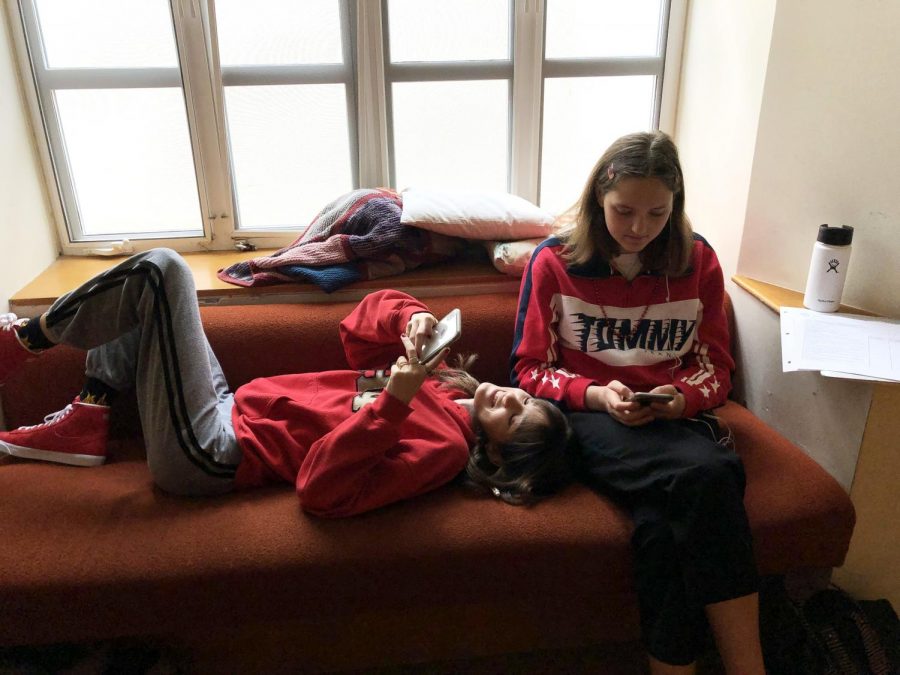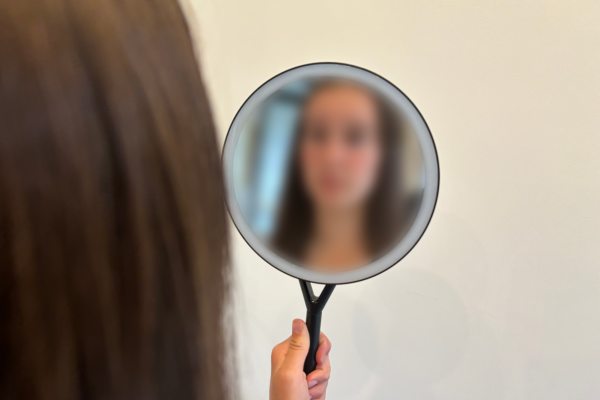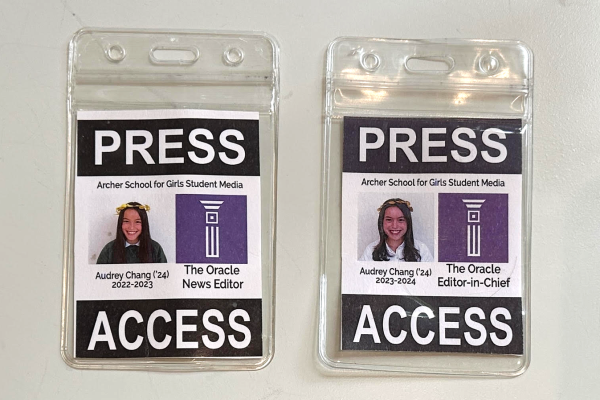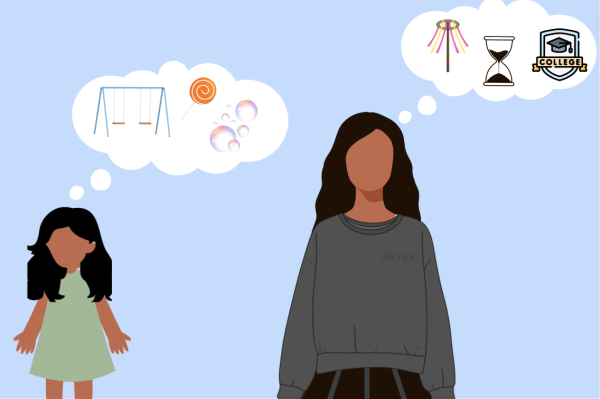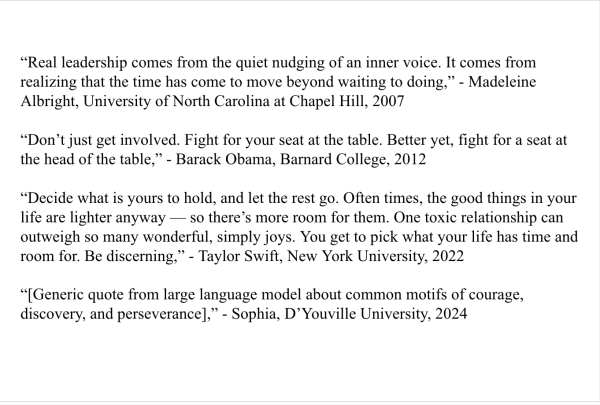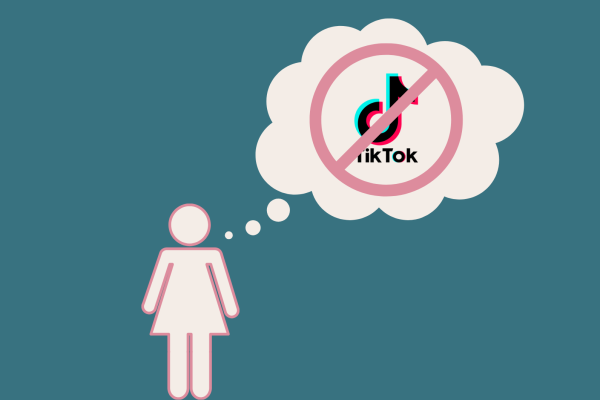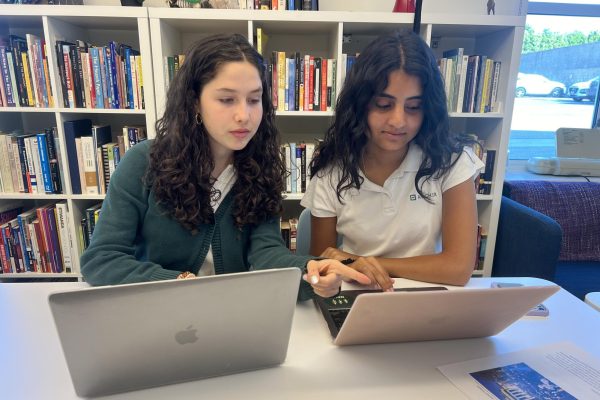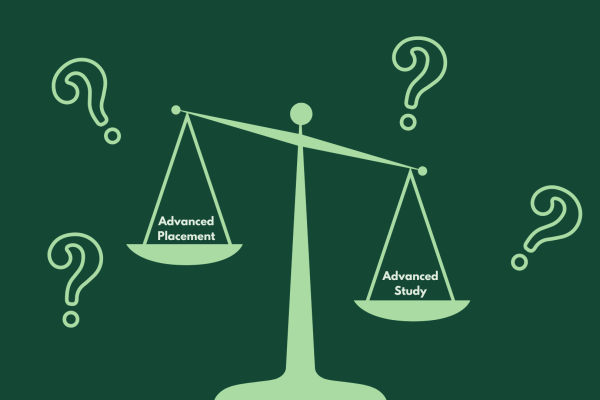Op-Ed: Face to face — not screen to screen
Photo credit: Nicki Rosenberg
Juniors’ Sophie Pollack and Anouk Braun scroll through social media during a free period. Over-use of social media has been linked to an increase in depression in young adults.
As I was sitting in my room one day after school scrolling through Instagram, as a typical procrastinating 16-year-old does, my mom randomly asked me, “Are you lonely?” I looked at her, puzzled, trying to understand where she was coming from. When I asked what prompted her question, she told me about an article she had been reading from NPR about how social media can lead to loneliness.
Although the idea that social media can affect someone’s mental health was not a new discovery to either of us, her comment did get me thinking about how my use of social media has affected my relationships.
In 2016, the Center for Research on Media, Technology and Health at the University of Pittsburgh performed a study on the association between social media use and depression among U.S. adolescents. The study found that, for young adults, the overuse of platforms such as Facebook, Snapchat and Instagram was associated with feelings of social isolation. The study concluded that “Young adults with high SMU [social media use] seem to feel more socially isolated than their counterparts with lower SMU [social media use].” But how can you feel isolated with hundreds or even thousands of people following your every movement?
On the rollercoaster that is the journey to adulthood, a stable support system, which often comes from friends, is always helpful. And after weekdays full of studying for the ACT, stressing over math tests and working on research papers, I always look forward to spending time with my friends to relax.
But what does that time really look like? We watch movies, go to the beach, shop and go to concerts, just like teenagers always have. But there is one thing always there that our parents didn’t have: technology and social media. In fact, it is such a large aspect of our lives that often weekend plans are based on the desire to get a picture for Instagram or show off some delicious food on Snapchat. And although occasionally someone will suggest putting all of the phones in the middle of the table while at dinner, it never lasts.
“You might watch all these interactions where it seems like everyone else is connecting,” study co-author Brian Primack said in an interview with NPR. “That could lead to feeling excluded. The images of other people’s seemingly perfect vacations, homes and lives, even though those are not likely to represent reality, can make you feel like you’re missing out.”
Exclusion is not a new concept, but the ability to know where and what all of your friends are doing all the time can definitely contribute to a feeling of being left out. In addition, the study investigated how the differences between face-to-face connections and those made through social media impact well-being and mental health.
A study about National Trends in the Prevalence and Treatment of Depression in Adolescents and Young Adults published by the American Academy of Pediatrics demonstrated the rising rates of depression amongst U.S. youth from 2005 to 2014. The study states that “the 12-month prevalence of MDEs [major depressive episodes] increased from 8.7% in 2005 to 11.3% in 2014 in adolescents and from 8.8% to 9.6% in young adults.” Facebook was founded in 2004, Instagram in 2010 and Snapchat in 2011. And in May of 2018, Blue Cross Blue Shield completed a study that revealed that the diagnoses of major depressive disorder have risen 33% since 2013.
As someone who is growing up in a world where not only most friendships but also many romantic relationships are discovered online, I am truly worried about the future. The effects of social media on mental health is highly concerning, and although many teens may want to deny it, being aware of the statistics has helped me understand how social media affects my mood. Though some of the best friendships I have were forged from a social media connection, I worry that myself and other young adults will become too reliant on our social media skills and lose our ability to socialize in the physical world.
However, I also don’t believe that we should say goodbye to social media for good. Although the negative effects are something to consider, there are as many positive ones as well. Even though it’s all I’ve ever known, the ability to Snapchat my friends in Australia and watch videos of my baby cousins on Facebook whenever and wherever I want to never fails to amaze me.
In order to keep ourselves from being anti-social robots and feeling alone all the time, it is vital to emphasize the importance of spending quality time face-to-face with our friends or families. So next time you’re at the beach or getting dinner with a friend, I encourage you to put your phone away and engage with them. We must learn to rely on ourselves — not our phones — to build meaningful relationships.

Nicki Rosenberg joined the Oracle in 2017 and was then promoted to Managing Editor as a junior. This year she will continue serving as the Managing Editor...



